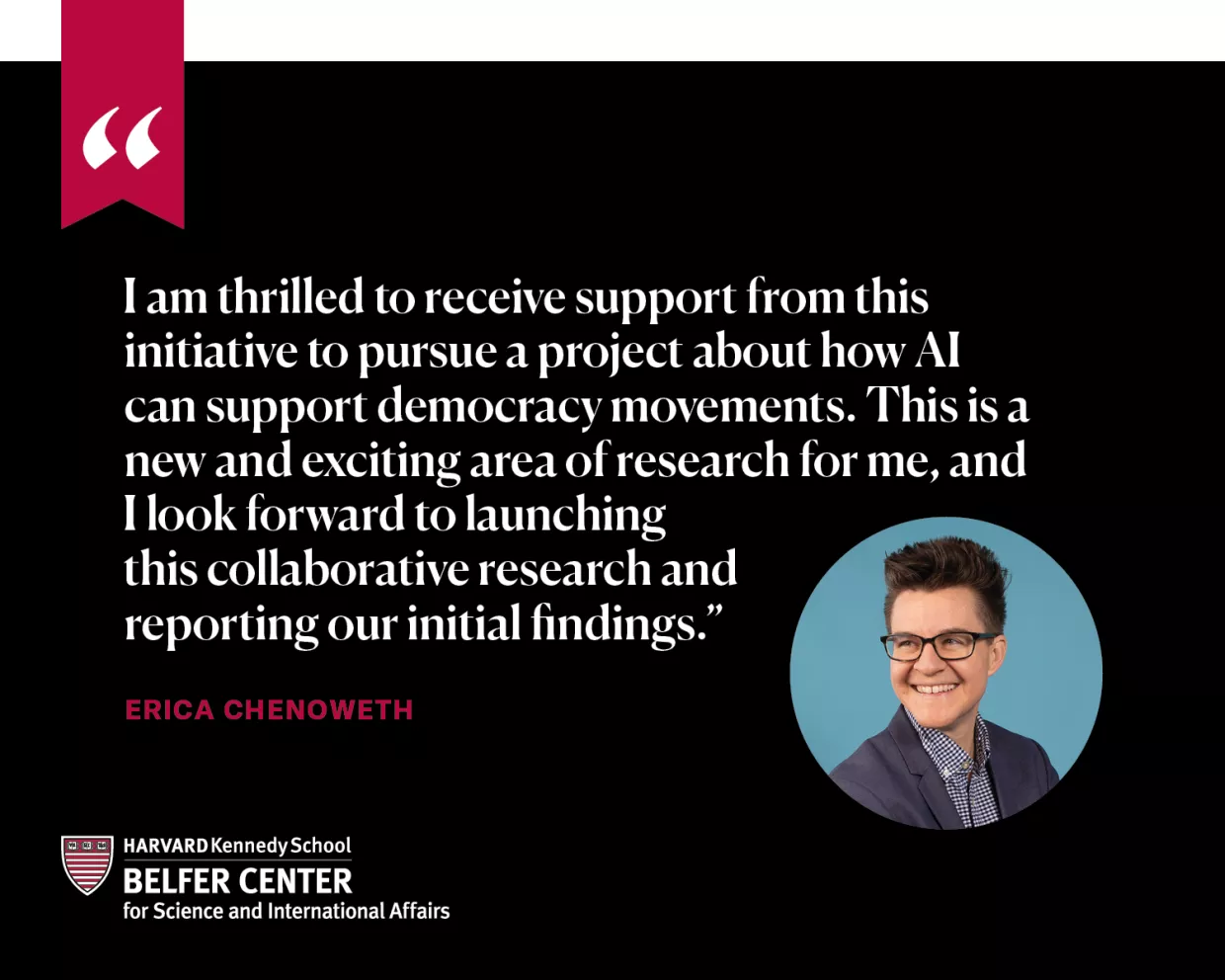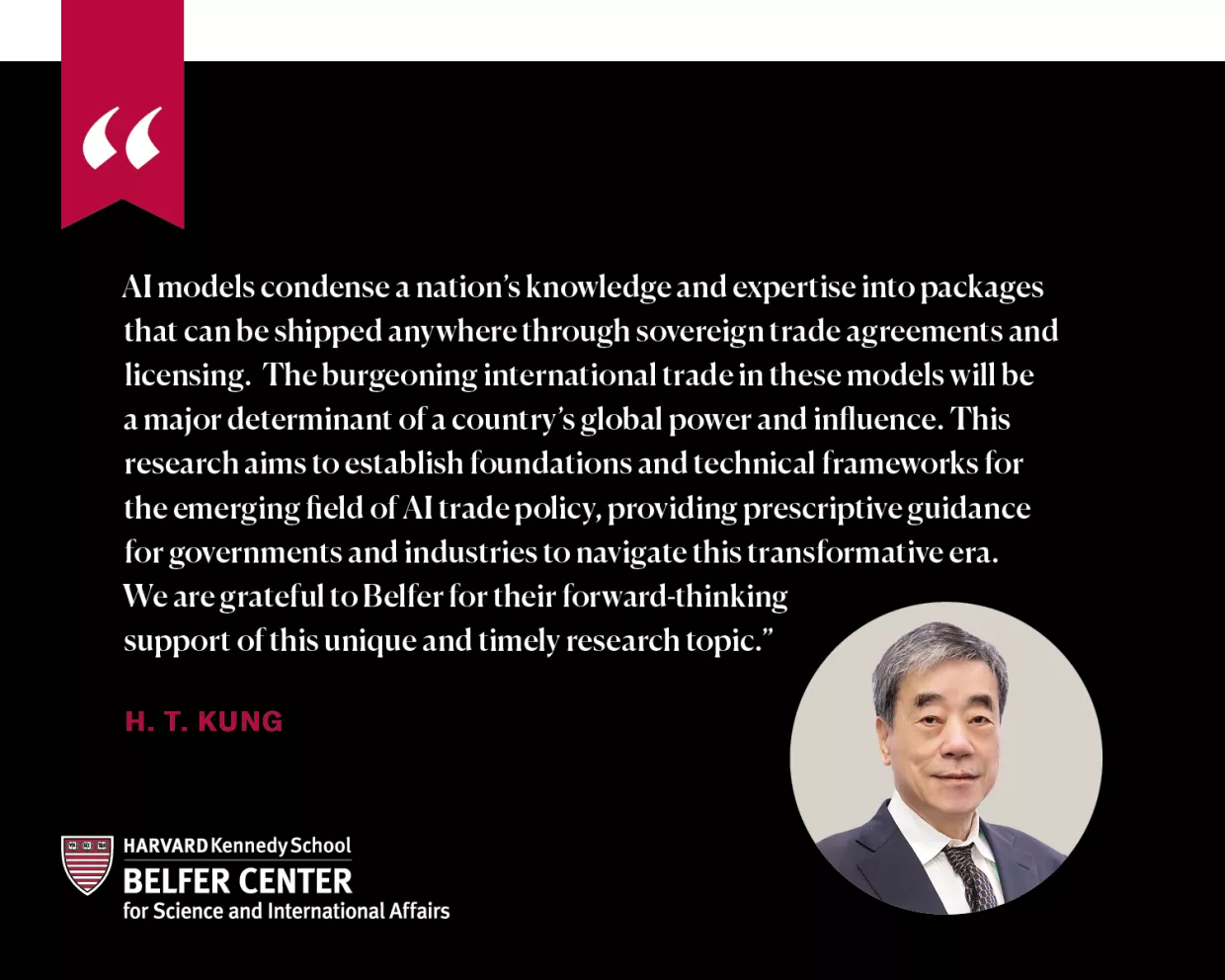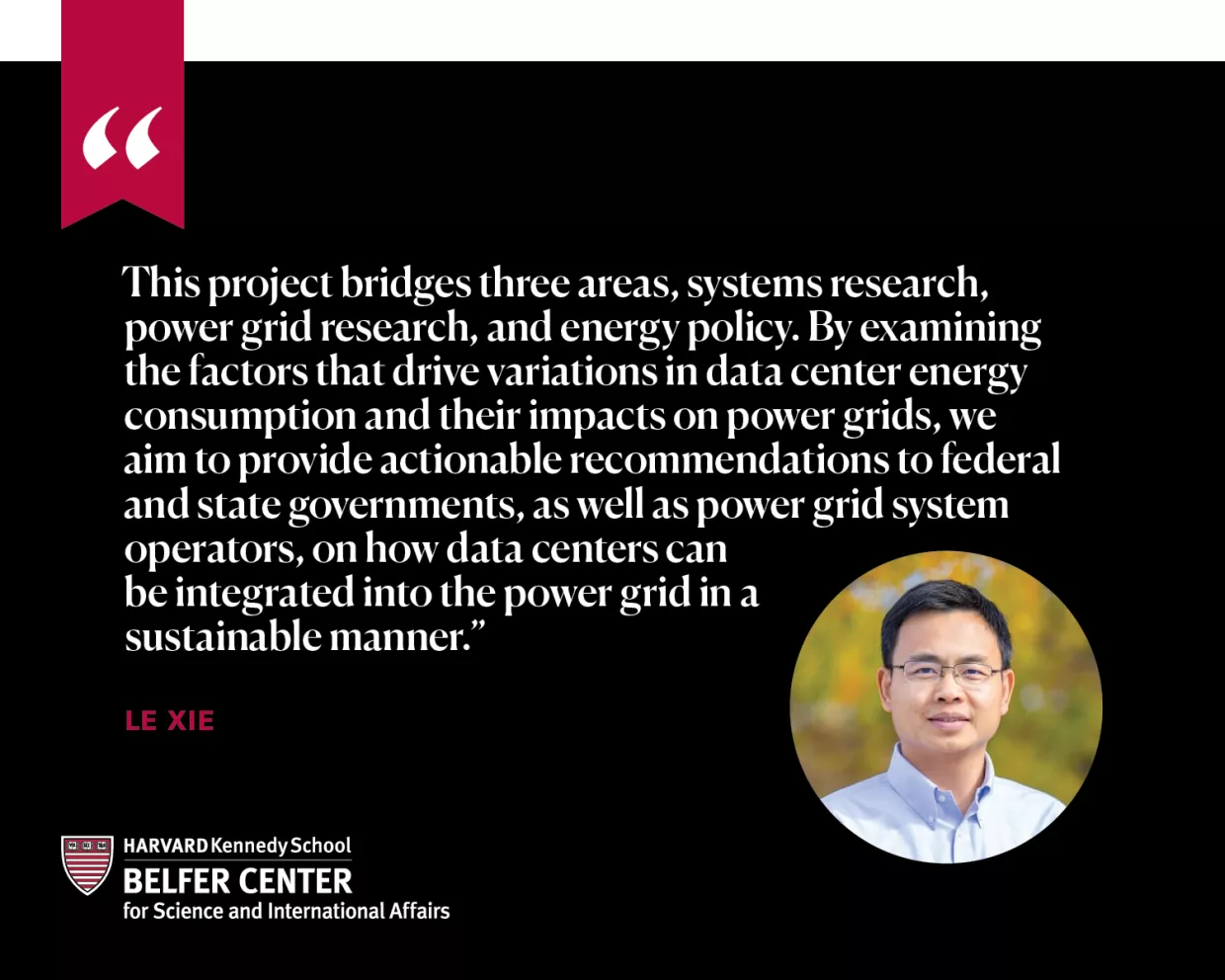Friday, April 18, 2025—Cambridge, MA—The Belfer Center for Science and International Affairs at the Harvard Kennedy School of Government (HKS) and the Harvard John A. Paulson School of Engineering and Applied Sciences (SEAS) today announced the first awards from their Faculty Research Fund on technology and geopolitics.
Following a highly competitive process, with evaluation by a multi-disciplinary faculty committee, three proposals from the inaugural class have been selected for funding. Awards have been made to teams led by:
- Professor Erica Chenoweth, Frank Stanton Professor of the First Amendment at HKS;
- Professor H. T. Kung, William H. Gates Professor of Computer Science and Electrical Engineering at SEAS; and
- Professor Le Xie, Gordon McKay Professor of Electrical Engineering at SEAS.
Meghan L. O’Sullivan, Director of the Belfer Center for Science and International Affairs, said: “I could not be more thrilled to launch the Belfer-SEAS Faculty Research Fund and to support exceptional scholarship grappling with the complex interactions of science and international affairs. This work continues the Belfer Center’s fifty-year tradition—but it also responds to consequential new challenges in an era of both technological advance and geopolitical turbulence.”
J. Michael McQuade, Director of the Program on Emerging Technology, Scientific Advancement, and Global Policy, said: “It’s great to move forward with these first awards. The selection of Professors Chenoweth, Kung, and Xie, together with their collaborators, demonstrates the appetite and capability to bridge the gaps between our technology and policy experts—a cornerstone of our Program. I am looking forward to watching their research flourish.”
The Faculty Research Fund—administered by the Belfer Center’s Emerging Technology, Scientific Advancement, and Global Policy program—provides support to researchers working collaboratively in areas where emerging technologies and scientific advances intersect with global policy and geopolitics. The selected projects are expected to produce publications, policy frameworks, curricular content, and novel AI-based tools.
This fund is part of the Program’s response to an urgent need to advance scholarship, build a new generation of leaders fluent in both public policy and technology, and test ways in which emerging technologies can be helpful in the processes of policy and geopolitics. The program’s work includes the Technology and Geopolitics Fellowship for outstanding pre- and post-doctoral scholars, senior fellowships for experienced scholars and practitioners, and research and convenings on novel questions involving emerging technologies and international affairs. Along with the Faculty Research Fund, the program is this semester conducting the AI + X + G initiative, a series of presentations and student study groups on the governance (the ‘G’) issues across key AI domains (the ‘AI + X’).
The Belfer Center’s partnership with SEAS on the Faculty Research Fund aims to broaden a community of interdisciplinary scholarship at the intersection of technology and geopolitics across Harvard University and beyond.
Frank Keutsch, Academic Dean of Research and Stonington Professor of Engineering and Atmospheric Science and Professor of Chemistry and Chemical Biology at SEAS, said: "By connecting engineers and policy experts, the Belfer-SEAS Faculty Research Fund strengthens our commitment to discovering and creating new technologies and approaches to societal challenges."
About the Projects
Project: AI for Democracy Movements. Principal Investigator: Erica Chenoweth
This project will assess the use of artificial intelligence tools by pro-democracy social movements, examine the impacts and potential of such tools to help movements accomplish their aims, and develop pilot AI tools to address some of the challenges these movements face.

Project: The Algorithmic Silk Road: Establishing AI Trade Policy and Its Geopolitical Ramifications. Principal Investigator: H.T. Kung
This project will research the vexing questions posed by international trade in AI foundation models, including what comprises these models’ supply chains, what risks countries face in producing and trading them, and how countries can seek to control—or at least adapt—foundation models in a globalized world.

Project: From Cryptocurrency to AI Training: A Techno-Policy Framework for Grid Integration of Large Computing Loads. Principal Investigator: Le Xie
This project will examine how electricity grids can manage the energy demands of large grid-connected computing centers in a reliable and sustainable way, drawing on data collection, modeling, and stakeholder engagement with grid operators in Massachusetts and Texas.

More detail on the three projects selected and their research leaders’ ambitions and scopes of work will follow.
About the Program on Emerging Technology, Scientific Advancement, and Global Policy
Launched in September 2024, the Program on Emerging Technology, Scientific Advancement, and Global Policy responds to an urgent need to advance scholarship, test ways in which emerging technologies can be helpful in the processes of policy and geopolitics, and build a new generation of leaders fluent in both public policy and technology. The Program conducts research, convenings, training, and public engagement. This work includes awarding Technology and Geopolitics Fellowships for outstanding pre- and post-doctoral scholars; offering senior fellowships to bring experienced scholars and practitioners into scholarship, events, mentorship, and training; producing reports and articles; and convening seminars, study groups and other events.
About the Belfer Center for Science and International Affairs
The Belfer Center for Science and International Affairs at Harvard Kennedy School addresses the world’s most consequential challenges at the intersection of science, technology, and international affairs. Bringing together scholars, practitioners, and students, the Belfer Center delivers cutting-edge research and forward-looking policy solutions. Benefiting from Harvard University’s dynamic academic community and broad range of perspectives, the Belfer Center bridges the gap between scholarship and real-world solutions while empowering the next generation of leaders to tackle complex global challenges.
